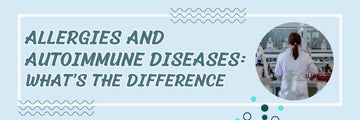Mother Nature’s Disease Prevention
We’ll explain what earthing is and how it can help you sleep in a bit, but first, a quick science lesson. The earth’s surface is covered in electrons, which are negatively charged, while our bodies produce a mostly positive charge. Without a constant stream of negative charge to balance this out, our positive charge can become excessive and, in turn, cause a build-up of free radicals. You may have heard of free radicals before – they can be quite harmful. Too many free radicals in the body can cause an increased risk of inflammatory disease. This happens because an increase of free radicals in the body results in an increase in oxidative stress. This oxidative stress can then go on to cause DNA damage. Not good. Damage to DNA can cause all sorts of issues. It’s one of the reasons older people are more susceptible to disease. You could look at is as prematurely ageing the immune system.What is Earthing?
Simply put, earthing is the act of being in contact with the earth directly. The goal of it is to absorb the earths' electrons to turn your positive charge neutral. Thus, preventing the domino effect of adverse effects that would otherwise happen. Research has found that just one hour of earthing can benefit inflammatory factors. It has also been found to significantly increase blood flow to both the torso and head, which could help general health, skin repair and vitality <3,4,5>.How can Earthing Help my Sleep?
 Sleeping issues tend to be attributed to modern technologies effect on our sleep-cycles, the influence of our ‘always-on’ culture and other modern stressors. Earthing can help to reverse the effects of these stressors in several ways. Firstly, it helps with regulating the circadian rhythm. One study on earthing found that it reduced cortisol levels while sleeping <6>. Not only that, but it also seemed to help resynchronise the secretion of cortisol to match patients’ sleep cycles. It was also observed to relieve pain and stress <6>.
Sleeping issues tend to be attributed to modern technologies effect on our sleep-cycles, the influence of our ‘always-on’ culture and other modern stressors. Earthing can help to reverse the effects of these stressors in several ways. Firstly, it helps with regulating the circadian rhythm. One study on earthing found that it reduced cortisol levels while sleeping <6>. Not only that, but it also seemed to help resynchronise the secretion of cortisol to match patients’ sleep cycles. It was also observed to relieve pain and stress <6>.
Earthing off the Ground
Now, we’re not suggesting that you go and live in the woods to improve your sleep. There’s a much easier way to reap the benefits for grounding without resorting to such drastic measures. And that’s by using ‘Earthing Sheets’. Earthing sheets contain highly conductive metals that attract electrons (which you can then absorb effortlessly as you sleep. The sheets do this once plugged into your mains, (but not turned on!) by transferring electrons from the socket to the sheet, and then to yourself while you sleep. The electrons travel to wherever there’s a positive charge – remember, opposites attract – so they’ll also stop transferring over once you no longer have a build-up.Energise Yourself with Earthing
It turns out that nature’s most potent antioxidants and anti-inflammatory isn’t blueberries, but electrons! However, the body requires regular sessions of earthing in order to maintain the benefits. A bit like going to the gym or eating well – you can’t just do it once and expect to be healthy. If nothing else has helped you to feel better rested in the morning, it could the that all you need is a bit of earthing to rebalance your body, circadian rhythm and cortisol levels. Making use of earthing sheets can help you make the most out bedtime and help you to finally feel energised again.References
<1> Cappuccio, F.P., D’Elia, L., Strazzullo, P. and Miller, M.A. (2010). Sleep Duration and All-Cause Mortality: A Systematic Review and Meta-Analysis of Prospective Studies. Sleep,
<2> Calem, M., Bisla, J., Begum, A., Dewey, M., Bebbington, P.E., Brugha, T., Cooper, C., Jenkins, R., Lindesay, J., McManus, S., Meltzer, H., Spiers, N., Weich, S. and Stewart, R. (2012). Increased Prevalence of Insomnia and Changes in Hypnotics Use in England over 15 Years: Analysis of the 1993, 2000, and 2007 National Psychiatric Morbidity Surveys. Sleep,
<3> Oschman, J., Chevalier, G. and Brown, R. (2015). The effects of grounding (earthing) on inflammation, the immune response, wound healing, and prevention and treatment of chronic inflammatory and autoimmune diseases. Journal of Inflammation Research,
<4> Chevalier, G., Melvin, G. and Barsotti, T. (2015). One-Hour Contact with the Earth’s Surface (Grounding) Improves Inflammation and Blood Flow—A Randomized, Double-Blind, Pilot Study. Health,
<5> Sinatra, S.T., Oschman, J.L., Chevalier, G. and Sinatra, D. (2017). Electric Nutrition: The Surprising Health and Healing Benefits of Biological Grounding (Earthing). Alternative therapies in health and medicine,
<6> Ghaly, M. and Teplitz, D. (2004). The biologic effects of grounding the human body during sleep as measured by cortisol levels and subjective reporting of sleep, pain, and stress. Journal of alternative and complementary medicine (New York, N.Y.),















